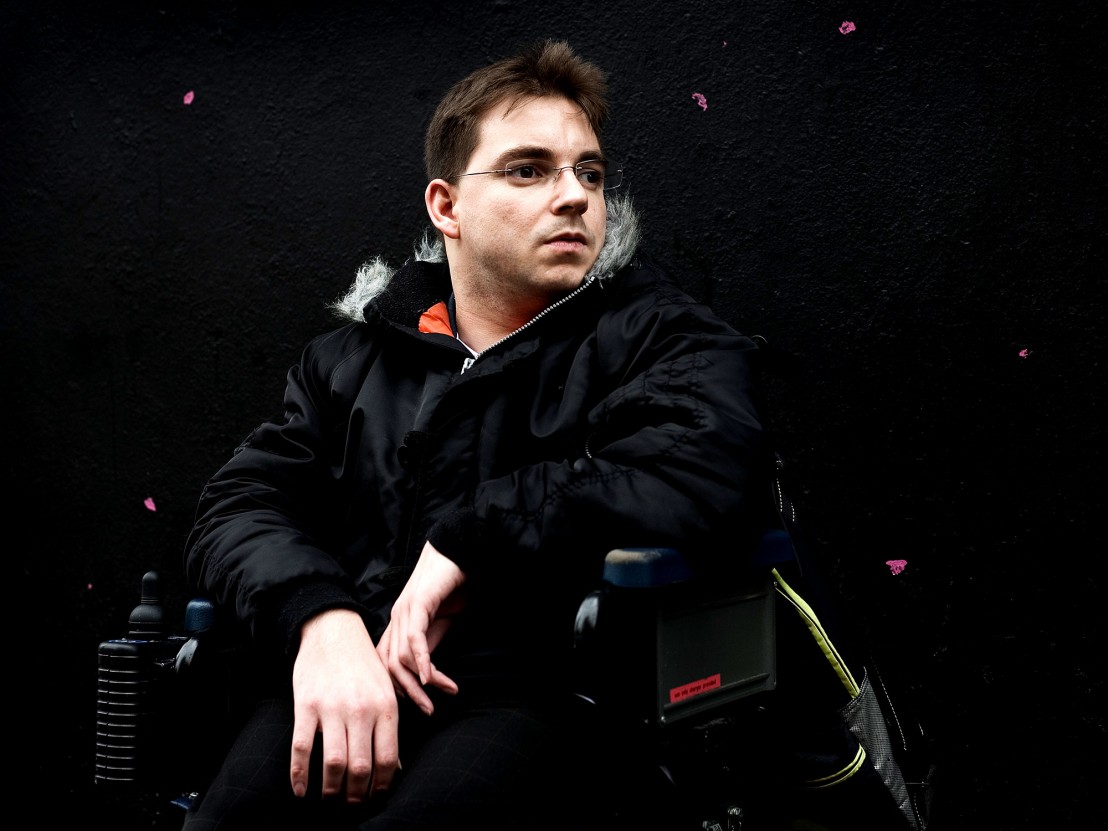
Today, disabled people make up approximately 19 per cent of the working population of the UK, but you wouldn’t know it from switching on the TV or going to your local cinema. The truth is, for every disability film festival or scheme that pushes the merits of disabled actors, there are still numerous barriers to equality in the system, from access to ignorance to blatant discrimination.
For a while, it all seemed like it might be different. In 1976, Britain’s Union of the Physically Impaired Against Segregation boldly claimed that, “it is society which disables physically impaired people.” This was the era of crip theatre and other radical art movements that fought to reclaim the identity of disability. At the National Film Theatre, Allan Sutherland and Steve Dwoskin programmed the pioneering Carry On Cripple season, while independent theatre companies sprang up around the county. This was the fuck-you face of disability, telling it like it was regardless of whether people wanted to listen. But even as guys like Billy Golfus continued to push the envelope, showing When Billy Broke His Head… and Other Tales of Wonder at Sundance in 1995 (tag line: ‘This ain’t exactly your inspirational cripple story!’), the mainstream proved stubbornly resistant to equality.
“They don’t want gangs of disabled people in the movies,” says Lucy Gwin, editor of Mouth magazine, ‘The Voice of the Disability Nation’. “It’s like a vision of death. That’s what goes on in the minds of people who want to have their movies and all their fancy occasions without us.” With that in mind, we spoke to three disabled actors and asked them to share the highs and lows of their professional lives.
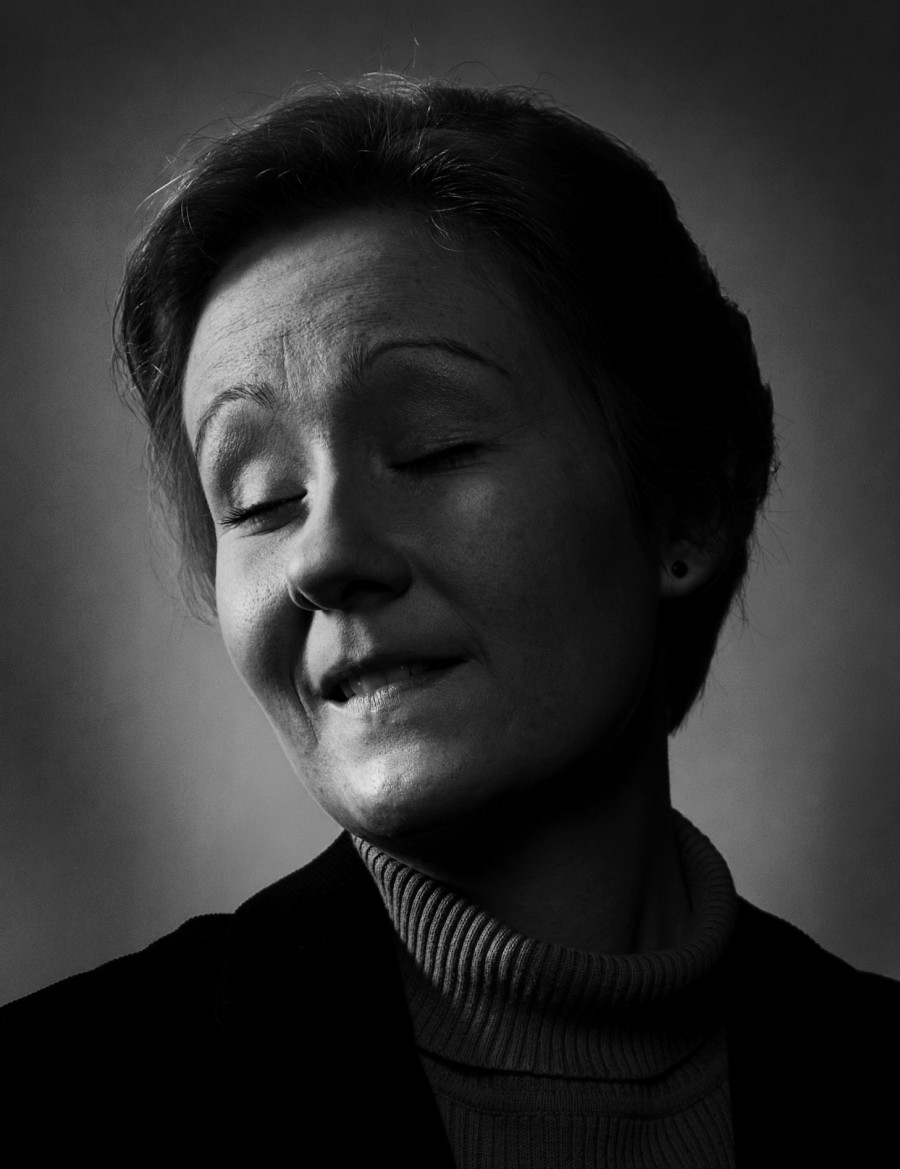
“As a child, my interest started out in radio drama, then I did voiceover work for audio magazines as a teenager, and eventually I came into acting. It was something that was born of other things, but it’s a love that’s grown. My big break was an audition for a guest lead role in a show called William and Mary. I got the part, and then had the huge shock of going from 40-second commercials to a nine-scene role in a prime time drama, which was terrifying but great fun, and obviously really good for my career.
“When I’m on set, the only difference really is that I need the script in advance because I put it into Braille, and on the day I’ll have an access worker there to read it to me in case there are changes. In terms of the physical filming process, the only adjustment that would have to be made is if I have to walk a specific route that has to be accurate in terms of the direction if it’s a tight frame. I might need to practice that a couple of times to make sure that I’m going to be able to walk exactly where they want me to.
“I have felt discriminated against in my career. Right from wanting to go to a mainstream school through to my career choices now, there have been people along the way who have either very outspokenly or more tactfully given me the same message: ‘Don’t bother’, or certainly, ‘Think long and hard before you do it’. And I also know of people who’ve gone for castings where they are supposedly looking for somebody with a disability, but then a non-disabled actor gets the role. Even if the non-disabled actor has more experience, with so few roles for us, how can we ever be expected to build up as much experience, and therefore be as proficient as an actor who probably goes to castings most weeks?
“The way the castings are run at, and the way the system is, means that there are a lot of barriers, which obviously limits the amount of work you can go for. Hence why I’ve got a pretty diverse career. I don’t think there is enough risk-taking. For some directors, if a person looked different, say, because of their eyes, everything else about them would have to be perfect if they were going to make that compensation. And I don’t think there is enough foresight as to how disability can be a part of a piece of drama without it having to be the central feature. It’s true that I do things slightly differently because of my disability, but I certainly wouldn’t discuss it in everyday life like it’s discussed in dramas. Instead of being issue based, it could be far more interesting and discrete if it was just there – just part of you as a person – rather than a major part of the storyline.
“There’s a lot of people you could blame if you were going to go down that route. You could blame commissioning editors, you could blame writers, you could blame casting directors, you could blame us as performers for not being vocal enough. But it’s difficult to be vocal when people aren’t necessarily that interested in listening to you. I would like to see true inclusive casting, that would be a perfect world, but I see that that is an awful long way off in terms of film.”
Anna Cannings is an actress who was born with bilateral microphthalmia, which means that her eyes haven’t fully developed. She was the first blind pupil to attend a mainstream school. In 2015 she starred in Roald Dahl’s Esio Trot.
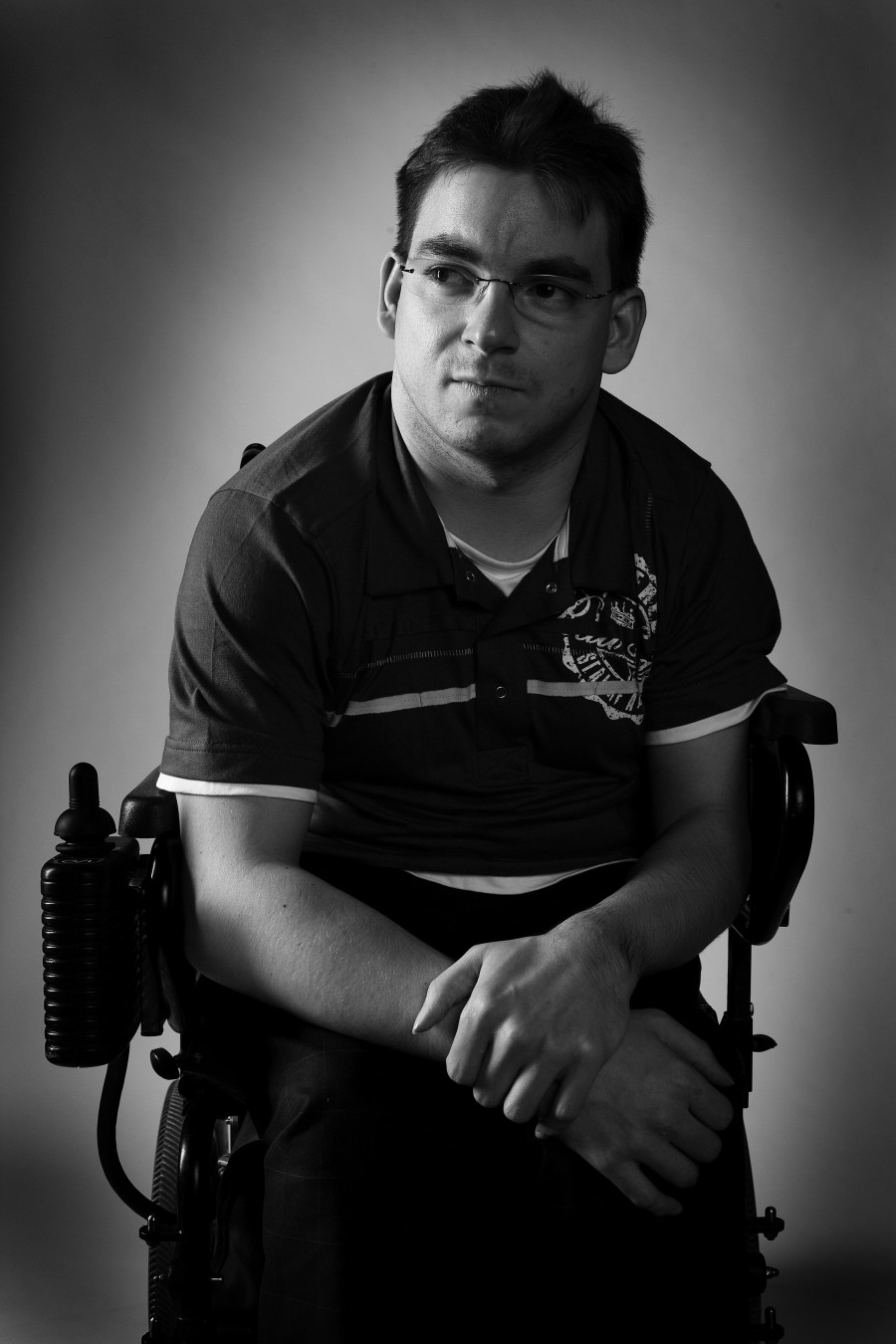
“Right from being a child I was interested in entertaining people. I did the school plays as most wannabe actors do, then I went to college and studied performing arts. Following that – after quite a lot of discrimination from places – I managed to enrol at drama school. Some of the places said that they didn’t see the point in training disabled actors at that time because there was no work for us, and a lot of them had no access. It was a real battle to get anywhere. It was devastating, but if you don’t get in somewhere, it’s very difficult to prove that you’re being turned down on the grounds of disability.
“You have to be careful – if you complain too much you quickly get a reputation for being ‘difficult’. But one of the things you need as an actor is tenacity, and I had supportive parents who wouldn’t allow me to give up. I eventually managed to pull through, but it was heartbreaking. What’s even harder is facing the criticisms from within the disabled community [about being a token presence]. I have spent many hours agonising over them, because all I’m trying to do is be an actor. In my view, the strongest way we can fight against discrimination is just to do the job, there’s not really a lot more we can do. I’m ultimately just an actor – I get paid to do the job and I have to do what I’m told. I can’t afford to make waves.
“I never wanted to be a trailblazer, and I wouldn’t wish it on anybody. All I want to do is work as an actor – that’s all I ever wanted – so to have what feels like a constant eye over my shoulder watching everything I do is quite difficult. Just give me a break – I’m doing the best I can with the parts I get offered. If I really thought they were doing damage to our cause I would speak up, but all I can do is be true to myself; I can’t reflect the point of view of every disabled person in this country.
“I suppose the roles that I’ve played on television have all been ‘about’ disability to a greater or lesser degree, in the same way that black actors in the ’70s were all playing parts to do with the colour of their skin. To move forward, we need to look at roles in other areas, maybe the theatre. I think the theatre could do a lot more because although it may be less heard about than television, any area we can get into which will push us forward and let us be seen by people in another way is going to be helpful.
“If I was in charge I’d open up more training courses, I would talk to drama schools and say, ‘Look, we want to give disabled actors roles and see them playing parts on the television, but we need you as an institution to give them the training.’ That’s where it needs to start. But then acting is renowned as a difficult profession – there’s no point getting too angry about that because all actors suffer. If you’re not prepared for that, then you don’t go into it.”
Paul Henshall is an actor who got his big break in the drama A Thing Called Love before landing a gig on Holby City. He has cerebral palsy, a disability that affects the limbs. He recently completed filming on The Confusion of Tongues.
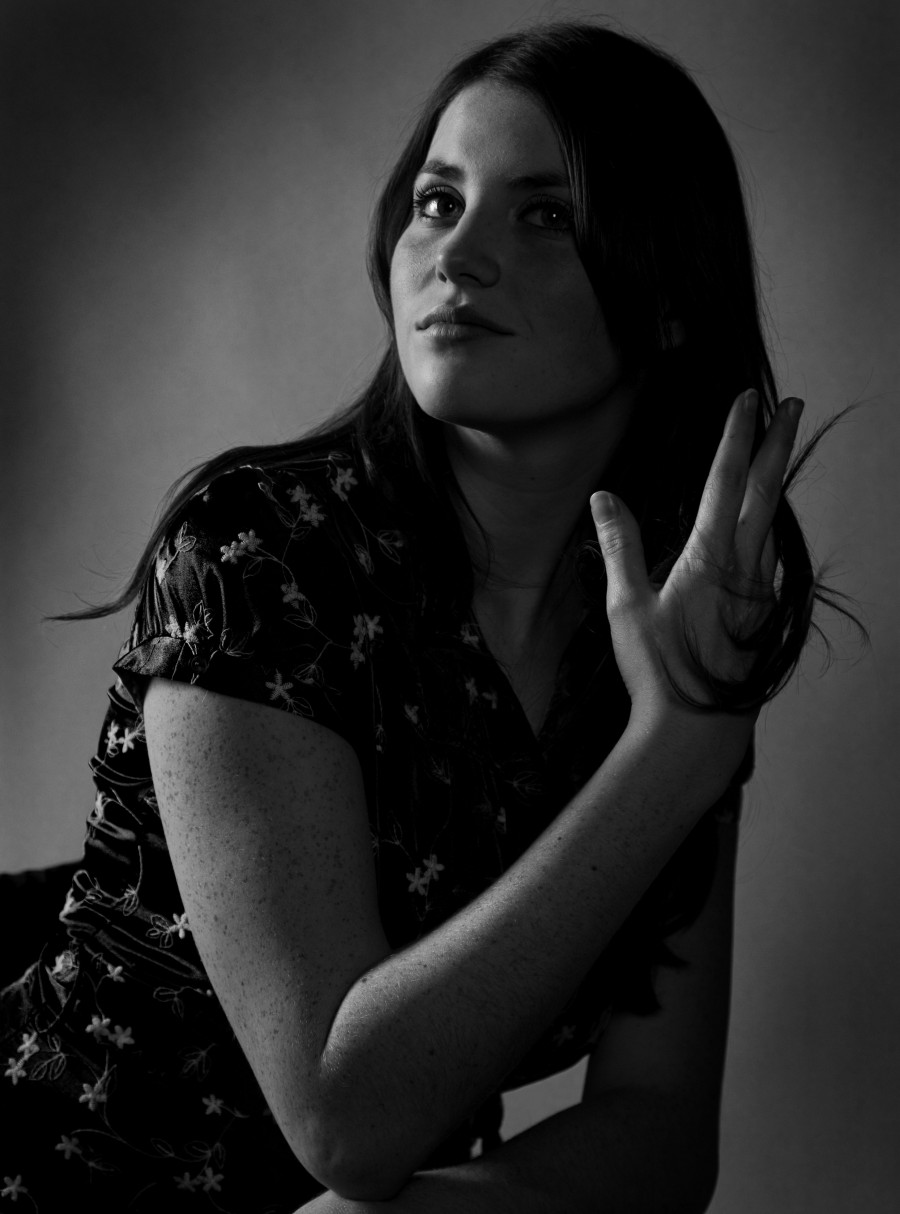
“My mum entered me for a modelling competition in the local newspaper when I was at school, but when I got through to the catwalk, she said, ‘Look, you can’t go because you’re in a wheelchair. They won’t be able to cope with you.’ She didn’t want to disappoint me because I’d had some bad experiences when I was younger where people weren’t prepared for me to show up like this, but I was really upset. So a while later I applied for a TV show called Model Behaviour, and I let them know that I was in a wheelchair. Eventually through that I was signed to a disabled talent agency.
“I didn’t realise that disabled people could do acting. You don’t really think about it, do you? But there aren’t that many roles for disabled people, and it’s a shame when actors who are able bodied get them. We don’t want to put disabled people in something just for the sake of it, but it means that they’re ignoring somebody who’s as good at acting and who’s probably going to be more natural when they’re in a wheelchair. I think that people in society don’t know how to cope with wheelchairs, and because people in normal, everyday life can’t deal with it, the media have found it hard to incorporate it.
“Just because you’re in a wheelchair doesn’t mean you’re worse off than somebody else. It’s because people in the media portray people in wheelchairs as being ill. Maybe when people who are disabled are in everyday situations, like, when they go to job interviews, or they go to uni, or they meet new people, then people will treat them normally rather than different, and they’ll be able to look past the disability. Once people get over disability and see you as a person, that’s when they’re going to start seeing us in films. That’s when you’ll be accepted and integrated.”
“People have to get used to disability first. My mum’s a carer at a community centre and looks after people with disabilities during the day. With some of the people there, visually it’s something that’s difficult to look at. People need time to get used to that sort of thing. It scares them – if you say, ‘Do you want to watch something and, oh yeah, it’s about disability,’ people get worried. That’s why you won’t see it on TV or film, but things like that are true. That’s real life. I think it’s more hopeful for future generations, though. If there are good disabled actors out there, then people can’t be turned down forever, can they?”
Sasha Hardway is an actress and model who has a rare form of dystonia, a disability that causes pain in her muscles and means she is unable to put her heels on the floor or keep her balance.
Published 29 Jun 2016
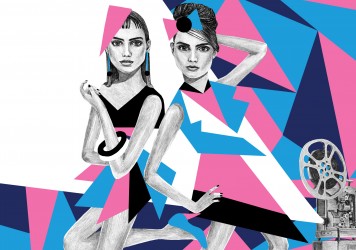
Models Elena and Manuela Lazic use their insider experience to take a closer look at Nicolas Winding Refn’s LA fantasy.
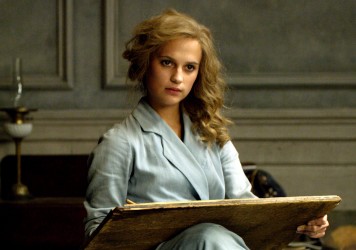
Gerda Wegener shocked the art world in the 1920s with her progressive and provocative paintings.
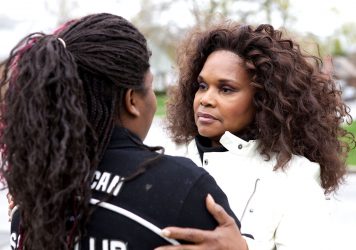
It’s possible for a movie to have a positive impact on society and the individual.